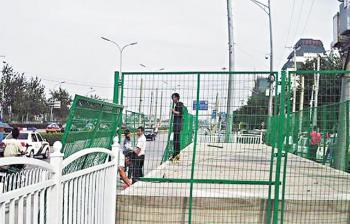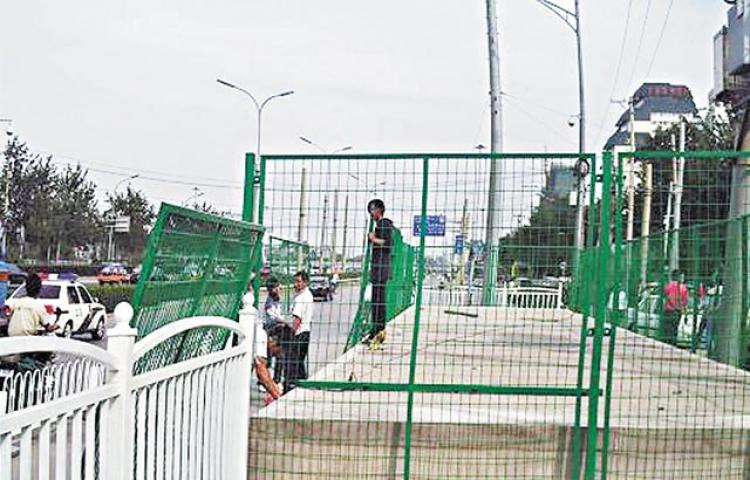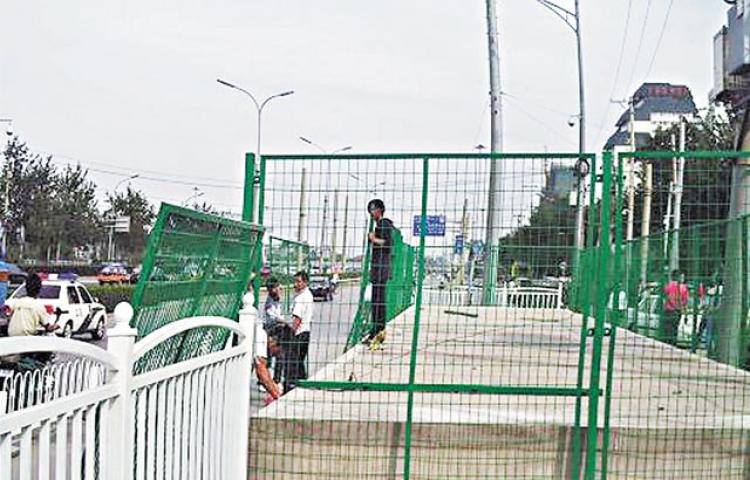Security Tight for Fourth Plenary Session in Beijing
Chinese authorities ramped up security in Beijing on Sept. 15 for the fourth plenary session CCP Central Committee.

Beijing authorities set up wire fences to block petitioners from gathering. Blogger image via Apple Daily
|Updated:
Matthew Robertson is the former China news editor for The Epoch Times. He was previously a reporter for the newspaper in Washington, D.C. In 2013 he was awarded the Society of Professional Journalists’ Sigma Delta Chi award for coverage of the Chinese regime's forced organ harvesting of prisoners of conscience.
Author’s Selected Articles






